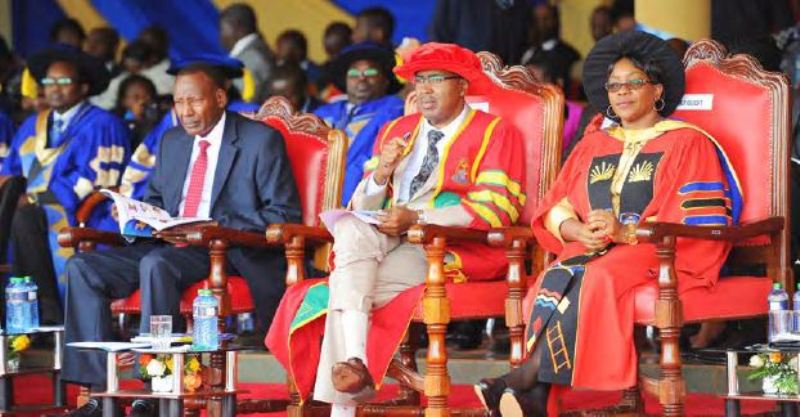When the door to his teaching job slammed shut 20 years ago, Dr Simon Gicharu embarked on an odyssey into the unknown. Coincidentally, this fateful dismissal swung open a new window of opportunity and forever changed his destiny and the lives of thousands of others.

After intense thinking about his plight, he saw a path he could follow: entrepreneurship.
He charged down the new path, trying one business after another. But he knew it was one big risk he was assuming. He had just traded the comfort of a salaried job in the public service with the uncertainties of the fluid world of entrepreneurship.
Not until he established a college did his wandering entrepreneurial spirit find a true home.
A visionary with an indomitable will, Dr Gicharu founded Mount Kenya University and gave deserving students the opportunity to access university education – with other doors shut to them.
In so doing, he revolutionised higher education. Today, he is among the most famous entrepreneurs and educationists in Kenya.Dr Gicharu knew that limited capacity in publicly-funded universities locked out tens of thousands of Form Four leavers who had attained joining qualifications. They had three options: to join the expensive Module II programme, enrol in private universities and pay equally high fees, or swallow their pride and settle for a diploma programme.
He saw a void and moved to create an alternative path for them, instantly transforming himself from a teacher to a celebrated entrepreneur.
“We did not establish MKU to compete with other institutions,” he insists. “MKU came to fill a gap in higher education and especially in Kenya. We are filling that gap well and we are happy.”
By successfully nurturing Mount Kenya University since its formative years as Thika
Institute of Technology to the academic titan it is today, Dr Gicharu has demonstrated the spirit of entrepreneurship. His resilience is stuff that truly distinguishes successful entrepreneurs from the rest.
He challenged the status quo and debunked the industry assumption that others had been educated to accept that Only religious institutions, professional association, rich individuals and non-governmental organisations could establish a university in Kenya.
Most private universities in Kenya are sponsored by religious groups. The majority of these institutions are limited in capacity. Their annual admission ranges from about 500 in the smallest institutions to 2,000 in the largest.
For long, entry to university education in Kenya had been mostly dependent on a student’s socio–economic background. High cost deterred many – even those with the relevant marks – from enrolling in these institutions.
Yet access to university education is not only one of the fundamental rights of an individual, but also an important exit route from poverty.
The 50,000 students enrolled at Mount Kenya University – making it the biggest such private institution in Eastern Africa – found the route to realising their dreams.
They are the reason the university exists and is thriving. Their huge numbers are proving Dr Gicharu right: Kenya and the region need this university.
With a bias for science and technology programmes, Mount Kenya University has treaded where few private universities dare not venture. These programmes require huge investments in infrastructure and faculty, something that Dr Gicharu has not shied from.
His eyes dance with laughter when he recalls the experiences he endured as he doggedly built the fledgling institution. His visit to Abarakant in Punjab State, India, to buy equipment for pharmacy training readily springs to his mind.
He was there for one week tying loose ends of logistics. For all that time, he subsisted on bread and soda.
“I could not eat the spicy Indian food,” he reminisces with a chuckle. “I was used to eating meat back home. To me, going one week without tasting nyama choma was a huge sacrifice.”
He is delighted that the School of Pharmacy he has built since then has attracted a sizeable international faculty. “The Indians who supplied the University with equipment have now come to teach and transfer technology in Kenya,” he notes.
And, by setting up campuses strategically across the country even in shunned regions like Lodwar, Mount Kenya University is making higher education affordable and accessible.
Individuals thirsty for higher education now need not leave their hometowns to travel to where they must pay for accommodation. The university is right at their doorstep.













